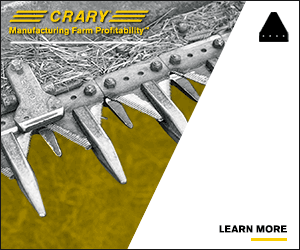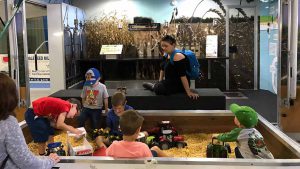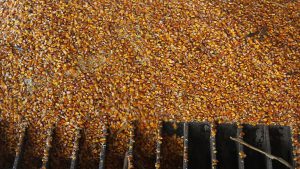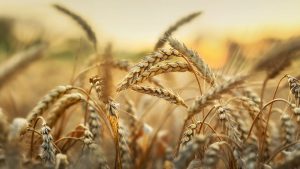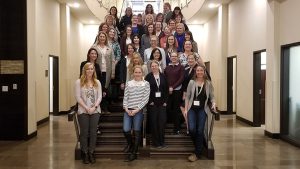The soil doctor is in
FARMSMART 2019
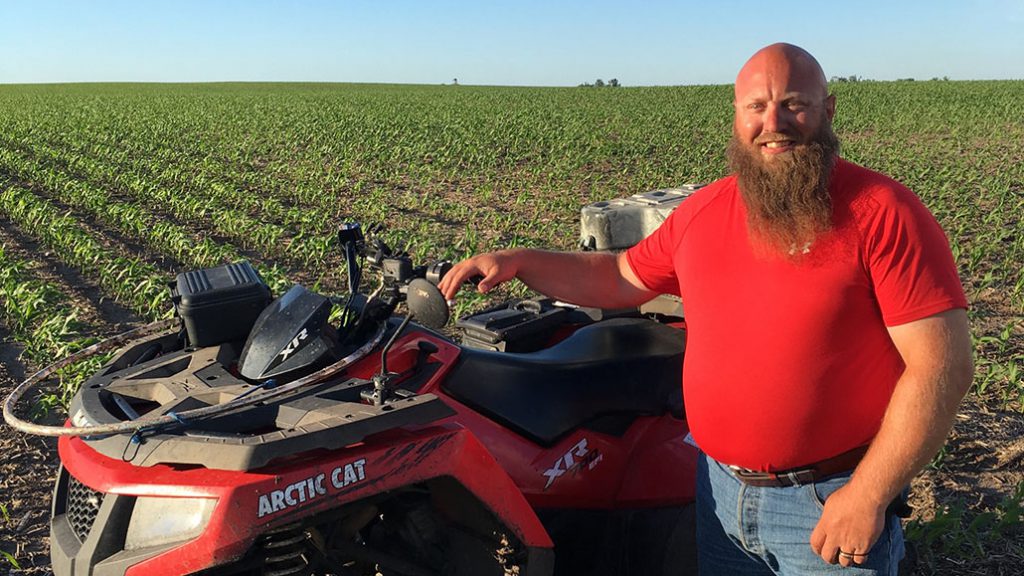
LEE BRIESE WON’T be wearing a white lab coat when he comes out to your fields. He’ll be carrying a shovel, not a stethoscope, but as far as he’s concerned, his job is as important to your farm health as your doctor’s job is to your own health.
Briese describes himself as, “an old farm boy who’s been in university too long.” He’s currently enrolled in the Doctor of Plant Health program at the University of Nebraska Lincoln, a three-year equivalent of a PhD. “It’s like becoming a doctor for crops,” says Briese, who earned his B.Sc. in Crop and Weed Science in 1998 and his M.Sc. in Soil Science in 2010 from North Dakota State University. He was honoured with the 2017 International Crop Advisor of the Year Award for his innovative leadership and knowledge transfer skills as part owner of Centrol Crop Consulting in Edgeley, North Dakota, providing annual service to over 85,000 acres of crops.
At FarmSmart 2019, Briese will bring a crop advisor’s perspective on managing for soil health and resilience. He will be talking about how to help farmers set and manage soil health goals, bringing tips and ideas on how to progressively improve soils and crops with an eye toward economic and environmental farm sustainability. Briese will focus on using sound science to guide on-farm decisions, encouraging farmers to do small trial projects, helping them to evaluate the results and to modify and tailor practices to work towards achieving their goals.
PROBLEM SOLVING
Briese loves problem solving. His favourite toy as a kid was the Rubik’s cube and now, “this is just the next level.” The problem may be water management, erosion, or organic matter, but just like your blood pressure is an indirect measurement of your own overall health, simply measuring won’t tell you what you need to do. Reaching a long-term goal will rely on a range of measurements that go beyond just yield to indicate the direction you need to go.
But it’s difficult to measure biology, said Briese. Every measurement is affected by temperature and moisture, varying daily. While testing can provide some answers, Briese prefers to assess soils with his shovel. What does that soil feel like? How easily does it lift up? What do you see — fungi? Holes? Earthworms? He describes soil structure as “housing for soil systems”, where there are lots of rooms for each individual component, all seeking a stable home. While he’s not necessarily against tillage, he explained that tillage will mix up that biology, destroying that structure, like exposing city people to country people: “Some microbes don’t like that.”
Over time he has developed the acumen to be able to read the soil. There’s something to that familiar earthy smell; if the soil is impaired by salinity, for example, not only are there visual cues but it doesn’t smell anymore. “You get a feel for it,” says Briese. “It’s like looking at your kids — you just know if one’s sick.”
REGULAR CHECK UPS
As a Certified Crop Advisor, Briese will bring his shovel to your field every seven days, starting two weeks before planting right through harvest. If there’s no problem, all is okay, but if he unearths an issue he’ll write a ‘prescription’, just like your doctor would, that you’ll then take to your seed and input dealer — your ‘pharmacist’ — to provide the products and services you need. Every grower will have a custom prescription that may include additional testing, resources, or specialized attention.
Briese believes in hard core science but he says there is still truth to things we can’t measure directly. He’s not entirely confident in the soil tests we currently have at our disposal, saying “they don’t add up to tell the whole story.” He’s also aware of a disconnect between hard core science and the end user, being careful to make his explanations palpable, not letting “nasty” words get in the way of translating that story to the farmer.
“Farmers are exceptional with visual cues and their hands,” says Briese. “I’m in awe of what they do, what they build, and their great imaginations.” He’ll be bringing lots of visuals to his presentation at FarmSmart but he welcomes discussion, encouraging farmers to bring their own challenges to the session.
The 20th anniversary of FarmSmart will be held at Rozanski Hall at the University of Guelph on January 19, 2019. For more information go to https://farmsmartconference.com. •


